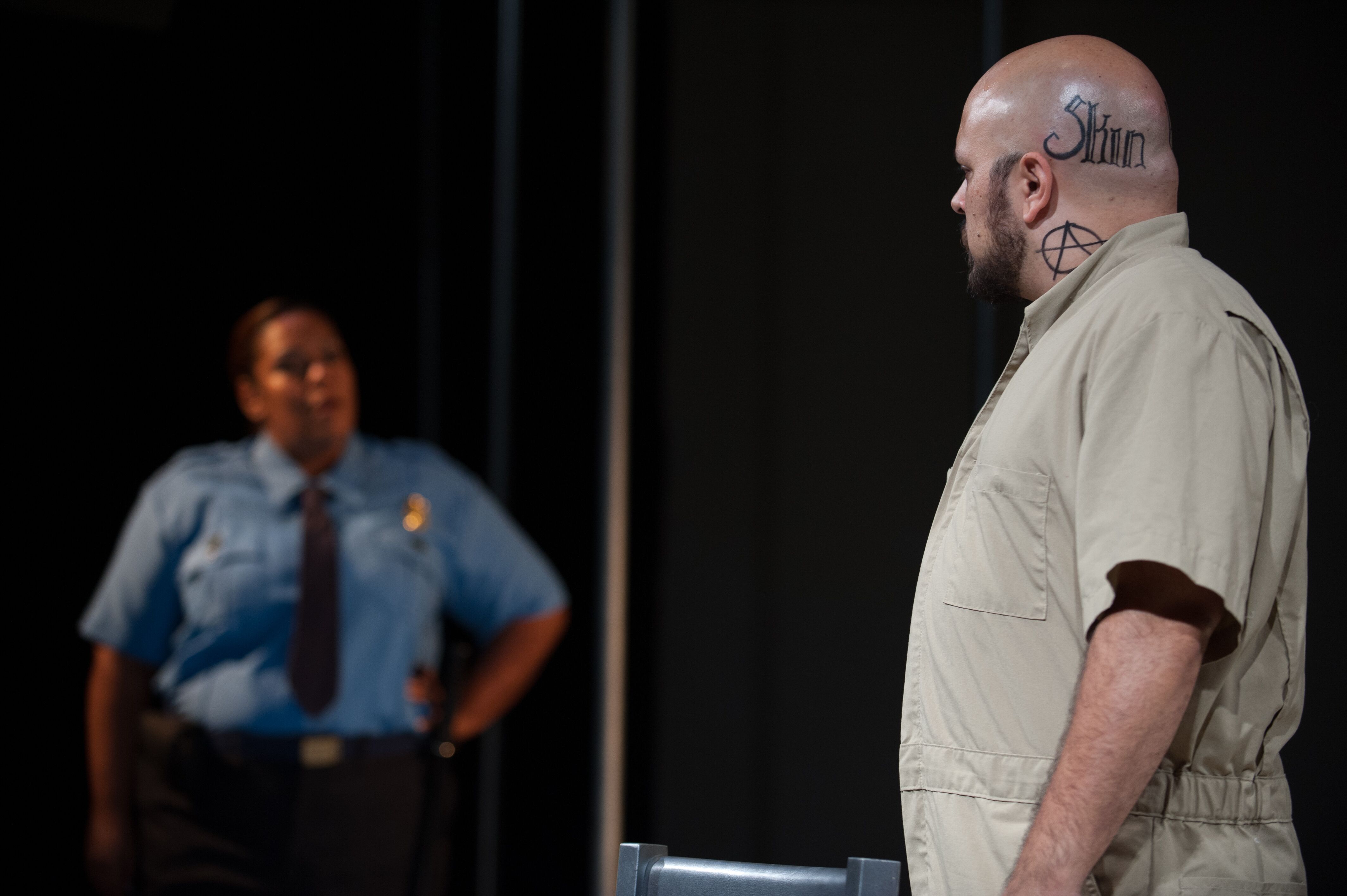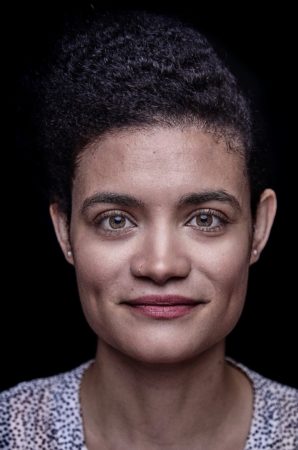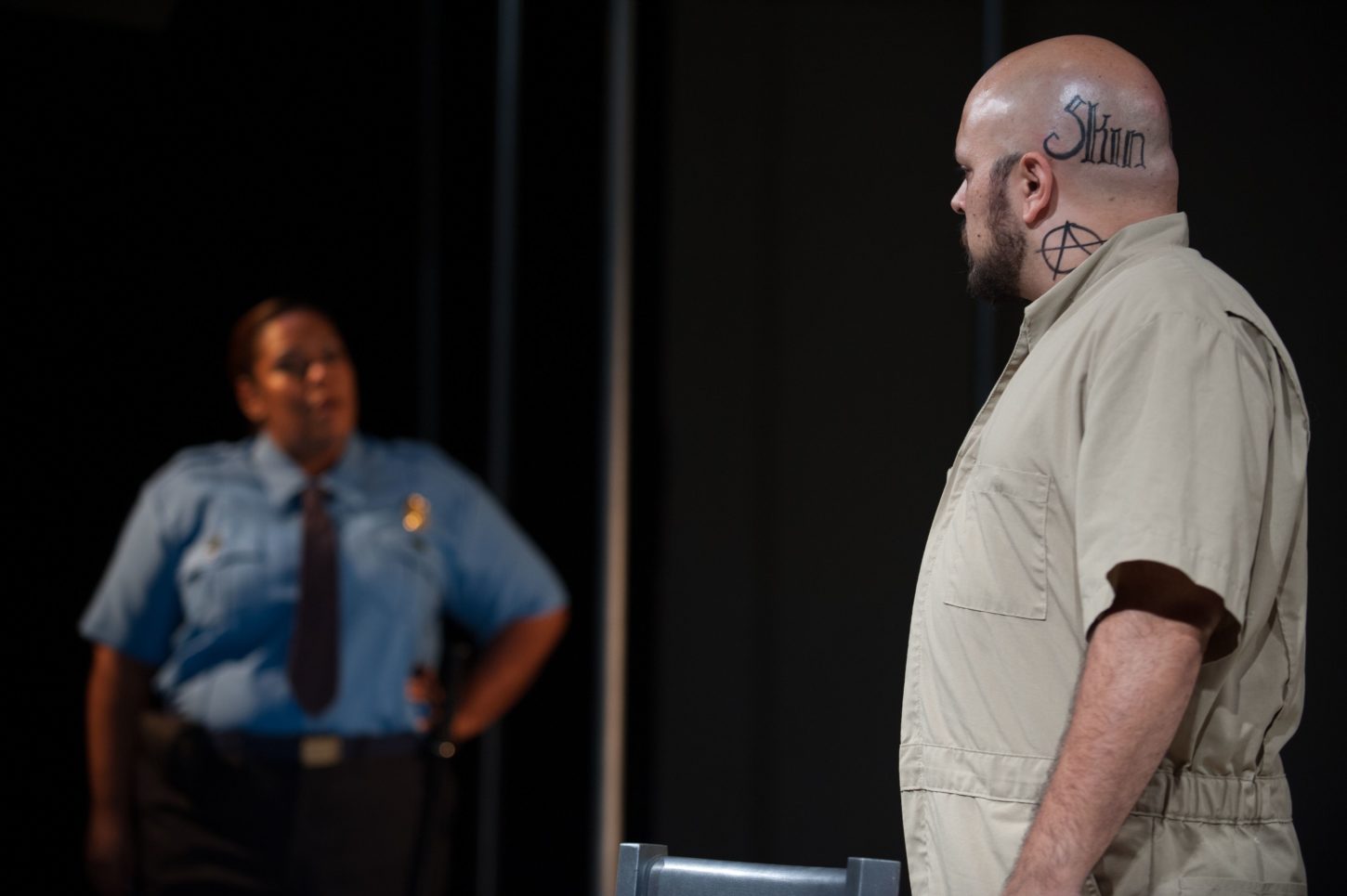Past Resident
Adrienne Dawes

Adrienne Dawes is an award-winning playwright and producer originally from Austin, TX and has been a Literary Fellow at Tulsa Artist Fellowship (George Kaiser Family Foundation) and a NALAC Fund for the Arts grantee. Her plays ask serious questions about race, gender, class, and sexuality (usually) in very comedic ways. Adrienne is a company member of Salvage Vanguard Theater. (Twitter, Instagram)
“As a young Afro-Latina actor, I quickly learned that characters written for people that looked like me were usually attacked or killed onstage. My writing speaks directly to those early experiences and in the most honest, respectful way responds, F*** that.”
 Q&A with Adrienne Dawes (Crosstown Arts newsletter, June 14, 2021)
Q&A with Adrienne Dawes (Crosstown Arts newsletter, June 14, 2021)
Crosstown Arts artist residency alumnus Adrienne Dawes (she/her) is a playwright, producer, and teaching artist originally from Austin, Texas. Her work has been developed with Queen City New Play Initiative, The Workshop Theater, Stages Repertory, B Street Theatre, Teatro Milagro, National Black Theatre, North Carolina Black Repertory, and English Theatre Berlin, among others.
Adrienne has been an Alice Judson Hayes Fellow (Ragdale Foundation), a Literary Fellow at the Tulsa Artist Fellowship (George Kaiser Family Foundation), and she was recently awarded a 2020 MAP Fund grant for her play Casta (slated to premiere at the Blanton Museum of Art soon). Adrienne is a member of the Dramatists Guild, ScriptWorks, and a company member of Salvage Vanguard Theater.
Crosstown Arts registrar Jesse Butcher caught up with Adrienne to discuss her childhood love of theater, her casting process, and her teaching practice.
Jesse: You grew up in Central Texas and received your degree from Sarah Lawrence, and then you went on to work with seemingly every theater company in Austin, Texas. Your passion for theater is absolutely remarkable. Can you recall when you realized your love and commitment to theater?
Adrienne: I always loved reading and writing stories as a kid, and I think I was always intrigued with the performance of stories and how actors embody a character. But I was also really, really shy growing up, and it took years of acting training to get comfortable speaking or performing in front of an audience.
In high school, I was cast in a professional show at Frontera@Hyde Park Theater (now known as just Hyde Park Theater), and under Vicky Boone’s leadership, they produced some really exciting new work by diverse playwrights. I auditioned with a poem I wrote and was eventually cast as Echo in “Polaroid Stories,” a play by Naomi Iizuka that combined the stories of street youth with Greek mythology. I remember we had one performance where we actually performed the play for an audience of street youth, and they were a pretty rowdy group. They talked back to actors and made noise during the performance, etc. But there were also these magical moments when the room was entirely quiet and still. That sort of magical connection between story and a live audience is something that has always deeply moved and inspired me. It’s also really hard to write or “design” those kinds of connections. The audience is always unpredictable, so I guess I’ll always be curious how and why those moments work (and when and if they work).
You’ve said you want every play to be “dangerous, strange, and funny.” I was fortunate enough to attend a reading of your work “Hairy & Sherri.” That work definitely fits in that category. I especially guffawed at some of the Austin jokes! What was the writing process like for that play?
A lot of different ideas and experiences have converged in the writing of “Hairy & Sherri.” When I first started out as a playwright, I wanted to write the furthest away from my experience as possible. So, I did the opposite of everything you are taught in school; I wrote what I didn’t know. I thought that would demonstrate a special level of skill and versatility, that I could take these really foreign experiences and make them so intimate and personal. I still think it’s a cool style trick (along with a great way to develop good research skills and exercise empathy), but more recently, I’ve been considering my own upbringing and experiences with adoption and how to express that onstage. I grew up as the “resident big sister” in a rehabilitative foster home, so even though I didn’t personally go through foster care, almost all of my siblings did. I also knew lots of case managers and social workers through my day job (LifeWorks) and how difficult their work was to move youth and young families from crisis to safety with very few resources.
Then, the frosting on top was unpacking a complicated conversation about race, class, and privilege through the guise of East Austin gentrification. In many ways, “Hairy & Sherri” is a horror story. This is the most fucked up thing I could imagine — a couple taking in a vulnerable kid, abusing them, and then throwing them back into the system. The play is also a comedy. I think comedy is a great strategy for disarming the audience a bit, opening us up to difficult conversations and experiences. As a writer, I really love playing between the extremes. “Hairy & Sherri” is a fairly new script. I completed the first draft as part of a residency in Muncie, Indiana in July 2019, and since then, the play has been developed in Fayetteville, Arkansas, NYC, and virtually with companies in North Carolina and Utah. I hope that once it is safe to perform again for live audiences that the play will receive a production somewhere. I’m also really hoping that one day the play reaches Austin. I have to be in the room when those Kendra Scott jokes hit a live Austin audience for the first time. I hope those moments work!
Having recently seen “This Bitch: Esta Sangre Quiero,” an uproarious influencer comedy you wrote, I am very curious what your casting process is like? I was captivated by these actors.
“This Bitch” was a super-rare occasion where, as the playwright, I got to audition and hand-select my cast. Typically, in the professional world, you cross your fingers that the director and producer invite you in the casting process because it’s not guaranteed unless you are also a producer in some capacity. Almost every actor is a current student at the University of Arkansas, with the exception of Chris Hecke, who played Olmo/Riqui (he’s an alum of the MFA program), and Michael Galvan, who played Teodoro (he’s an actor from Austin who came recommended to me by another Texas playwright). Leah Smith was always going to be Coco Wawa; I was absolutely writing that role with Leah in mind. I think I texted her out of the blue one day, like, “Hey can you do a Jojo Siwa impression?” to which she replied, “Who?” But now, I will forever think of Leah when I think of that role. She taught me so much about her. Her chemistry with Ana Miramontes (Diana) was a big surprise. Audiences shipped them so much harder than Diana and Teodoro, which is not the design of the original play (the play is a modern adaptation of a Spanish comedia from 1618 by Lope de Vega). So for next draft, I’ve got to find a way to make Coco a little less attractive (if that’s possible), or I’ve got to buckle down and write Coco her own play or musical.
You studied with the prestigious Second City in Chicago, Illinois. What kind of experience was that? Did it inform your approach to writing?
My time studying at Second City in Chicago was really fruitful and introduced me to some of my favorite people and collaborators. I learned a lot about writing comedy just from the practice of performing improv, musical improv, and sketch every week. I think there were some unfortunate lessons mixed in there too. I learned from bad examples of how not to teach writing (don’t name drop and talk about yourself the entire class!!!) and how not to direct (don’t declare theater an aristocracy and then declare yourself to be dictator; don’t be transphobic; don’t treat actors like shit, especially if they are volunteering; don’t be an asshole, basically). I think both the comedy and theater communities share so much in common but are weirdly jealous of each other’s audiences. I’ve often tried to find projects that overlap, like shows that might cast stand-up comedians in serious dramatic roles or ask “serious theater actors” to improvise. I love the spirit of “if this looks fun, you can do this too” that improv theaters offer, but I also love the intensive rehearsal process of dramatic theater. I really don’t see the communities as being that different. They are both lovely and flawed and intense and wonderful.
Teaching is also a large part of your life with your position at University of Arkansas, Girls Rock Camps, and a multitude of workshops. How has your teaching practice evolved over time? When did you first discover your talent for education and community service?
I really enjoy teaching, but I’m definitely a beginner. I’m still learning how this all works, and it’s probably going to be a lifetime of learning. It’s a balance of things — how to share your enthusiasm and offer some structure/accountability without squashing or overwhelming a student. Some of my best teachers would literally just show up, ask questions, and then just listen to me ramble away. So that’s where I hope to grow more as an educator: saying less and being more present. I’m working with some really great playwrights this semester, and it’s so inspiring to watch their work grow over time. It also really keeps you on your toes as an artist, trying to break down complicated theory or process. Like what is the difference between plot, structure, form, and premise? My co-instructor and I are always reminding our students that we are still learning too, and we are there to give them tools, not rules.
Thank you so much for taking the time to share your work with us! We are looking forward to your future projects.

